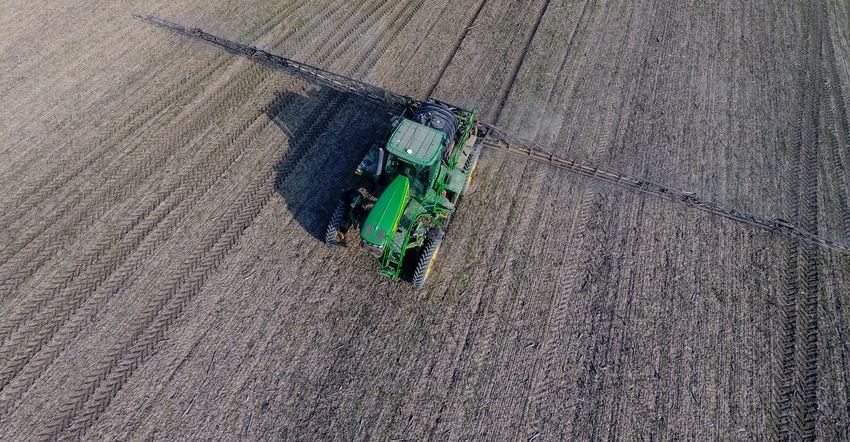October 4, 2017

With the fast-rising national interest in soil health, university researchers are digging into potential unintended effects of herbicides, insecticides, fungicides and biocides — direct-applied and seed treatments on soil microbiome. Much is unknown about combination effects of active ingredients, inert ingredients, salts, surfactants and tankmixes.
However, new research findings are discovering unexpected interactions. For instance, as you battle aboveground weeds, you may inadvertently cause underground casualties — beneficial bacteria. Cornell University researchers recently found negative consequences of glyphosate on a soil-friendly pseudomonas bacteria. (Note: This research was conducted in-laboratory using succinate organic acid as a medium for testing glyphosate’s impact on the bacteria.)
How beneficial soil bacteria work
“Beneficial pseudomonas in the soil can help crops thrive,” explains Ludmilla Aristilde, Cornell assistant professor of biological and environmental engineering. “They can produce plant-stimulating hormones to promote plant growth and antifungals to defeat problematic fungi such as pythium and fusarium.
“Previous studies reported that the abundance of beneficial bacteria decreased when the herbicide glyphosate seeps underground,” adds the researcher. “Our study seeks to understand why this happens.”
The findings show that glyphosate doesn’t target amino acid production and metabolic gadgetry equally among pseudomonas species. For instance, when pseudomonas protegens, a bacteria used as a biocontrol agent for cereal crops, and pseudomonas fluorescens, used as a fungus biocontrol for fruit trees, were exposed to varying glyphosate concentrations, the researchers noted no ill effects. But in two species of pseudomonas putida used in soil fungus control for corn and other crops, the bacteria’s growth was notably stunted.
“If a farmer is using pseudomonas fluorescens as a biocontrol, then it’s probably OK to use glyphosate,” says the faculty fellow at Cornell’s Atkinson Center for a Sustainable Future. “But if pseudomonas putida is used to control the fungus in soil, then glyphosate is more likely to prevent the bacteria from doing its job. If that’s the case, farmers need to know which beneficial soil biocontrol they’re using can be susceptible,” she concludes.
University of New Hampshire and Penn State University researchers are also digging deeper into how seed treatments may be hurting soil fauna and helping weeds.
Source: Cornell University
You May Also Like




